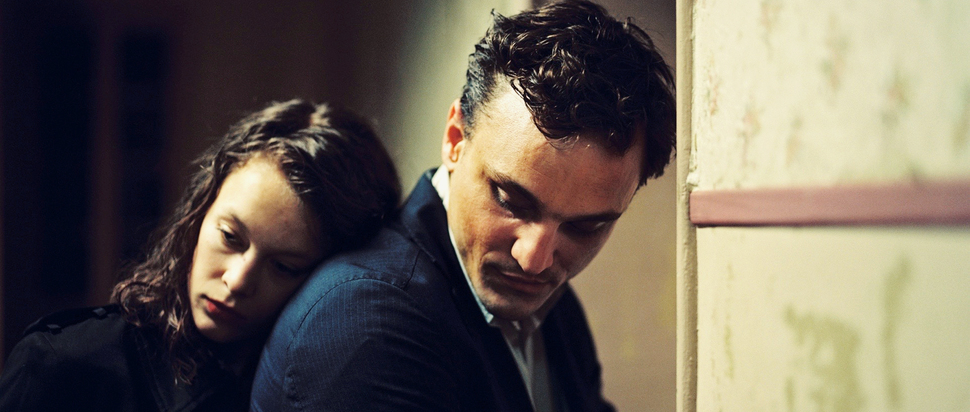Christian Petzold on WWII drama Transit
Christian Petzold scrambles time and identity in his twist-filled adaptation of Anna Seghers’ WWII novel Transit. The German filmmaker tells us what period films often get wrong about the past and why he's not going to cast Steven Seagal anytime soon
Christian Petzold is seated in the balcony bar of the Berlinale Palast, the posh venue that annually hosts the grandest premieres at the Berlin Film Festival, and giving The Skinny a brief history lesson. “Right now we’re sitting on Potsdamer Platz, and exactly where we are sitting there used to be an orphanage: the orphanage where Bruno S lived, the protagonist in Werner Herzog’s movie Every Man for Himself and God Against All.” Readers are more likely to know the film by its international title, The Enigma of Kaspar Hauser. “During [WWII] they were bombed out and traumatised.”
This trauma that haunted Bruno S seems to haunt Petzold also. The 58-year-old German filmmaker has increasingly turned to his nation’s turbulent past in recent works. In 80s-set GDR thriller Barbara (2012), Nina Hoss plays an East Berlin doctor who’s planning to defect to the West but has the Stasi breathing down her neck. Hoss also starred in Petzold’s haunting Phoenix (2014), in which a disfigured Holocaust survivor returns to postwar Berlin with a new face after reconstructive surgery. In both, Germany’s dark, splintered past seems to talk to its unified present. In his wonderful new film Transit, based on Anna Seghers’ 1944 novel of the same name, the distance between Europe’s past and present is elided completely.
Seghers’ novel is set in Nazi-occupied France just a few years before it was written, but Petzold’s film seems to take place in a liminal time between then and now. Protagonist Georg (Franz Rogowski) is a German refugee on the run from Paris to Marseille trying to avoid the fascist regime who’ve occupied the north of the country; he's dressed like he’s straight out of a Jean Gabin flick from the 40s, but there are plenty of anachronisms along the way that suggests the time period is much closer to today. We see 21st century cars in the streets, most of the characters wear contemporary clothing, the film’s narrator references Romero’s zombie movies and Georg discusses the league success of Borussia Dortmund with a young football-nut.
This discombobulating timeline instantly insinuates a link between the atmosphere of fear during Nazi-occupied Europe and the ripped-from-the-headlines stories of desperate refugees denied safe passage through Europe today. Petzold explains his resistance to a traditional period setting: “I’m not interested in a reenactment of history, like everything is arranged like in a museum, and people go to the cinema to look at how people like Marie Antoinette or Napoleon lived in those days, and then go back home. To me, that’s dead history. As Faulkner once said, ‘The past isn't dead. It isn't even past.’” With Transit, Petzold’s uncanny setting suggests the events of the past are still palpable today.
As hazy as the timeframe is our hero’s identity. On his journey to Marseille, Georg inadvertently finds himself in the possession of the manuscript and papers of a famous Mexican author who has committed suicide. The author’s passport should secure him safe passage across the Atlantic, but while reading the manuscript there’s also the dreamy feeling that Georg is entering the writer’s fictional narrative. “I love stories where people try to be someone else,” Petzold says, “like Jack Nicholson in that movie where he’s a reporter and he assumes someone else’s identity, the person who’s died.”
The Passenger, we suggest? “Yes, that’s the one. These people, they might try changing identities because they have a feeling that their own lives are meaningless or empty, and a different identity would offer something new, but the problem is that people always carry who they are with them into the new identity and that’s also the same problem for these refugees, they always carry with them who they are and where they are from, like a backpack. That’s the core of this story, I think, the problem of trying to change your identity is that you still can’t get out of your skin.”
These ruptures in time and identity may be destabilising, but at the centre of the movie, Franz Rogowski's insular, soulful performance proves a captivating ballast. Petzold puts Rogowski’s on-screen charisma down to two qualities. First, his physicality. “When I was writing the movie I imagined someone like Jean-Paul Belmondo playing that part, someone who might be playing around with girls but also might steal a car and wouldn’t care about tomorrow. Franz doesn't come from an acting academy, he was actually a trained dancer, so he has this very impressive physical presence.” And second is the sadness in his eyes. “That’s something that all the great screen actors share: this sense of melancholy.
"All great heroes are sad characters, and that’s why Steven Seagal is not a hero, because he’s never sad.”
Transit screens at Glasgow Film Festival 2019 – Fri 22 Feb, 6pm, Glasgow Film Theatre; Tue 26 Feb, 4.45pm, CCA
